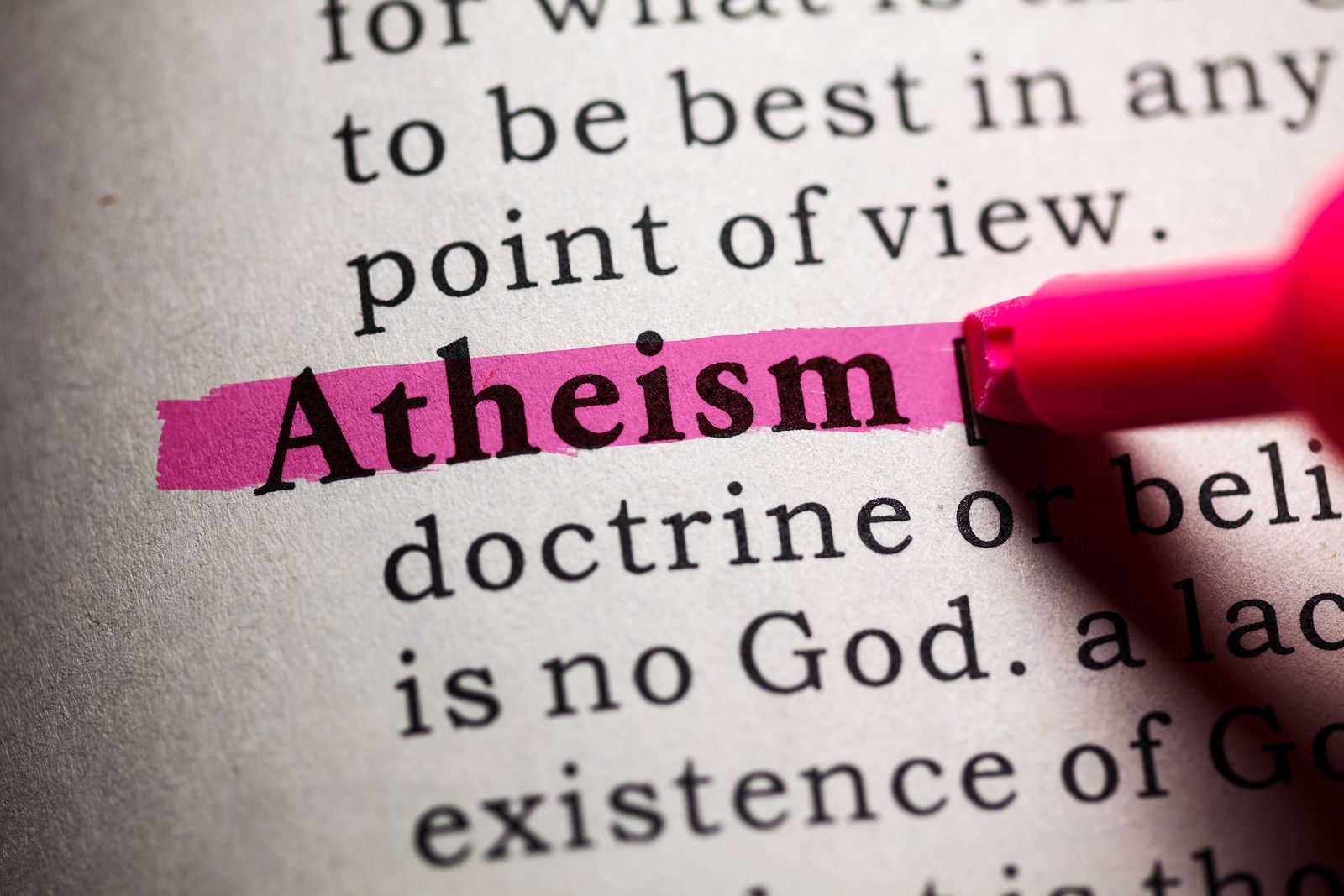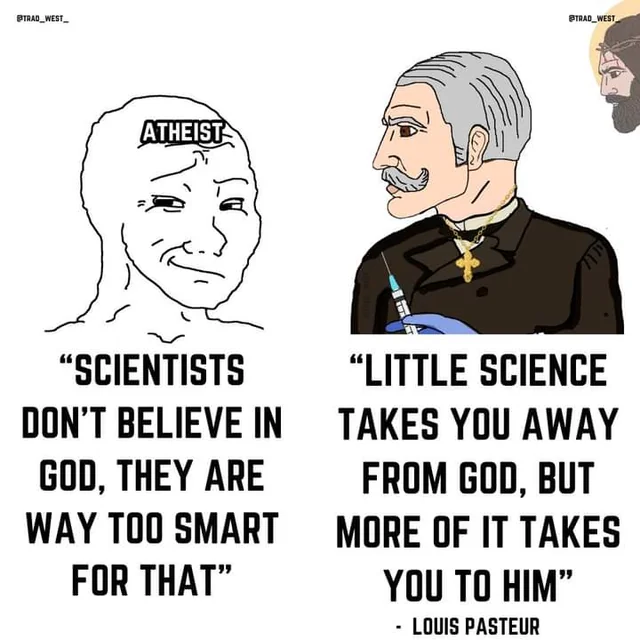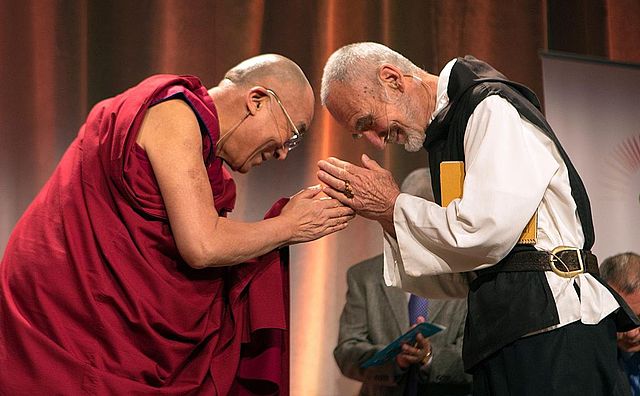This is an oldie (from 2014) but a goodie. A legit science website (Science 2.0) publishes an blog post entitled Scientists discover that atheists might not exist, and that’s not a joke by Nury Vittachi. It’s a great example of what happens when you try to be so nuanced and sophisticated that your head gets sucked up into your own ass.
The overall premise of the article is that studies seem to show that all people may tacitly hold religious beliefs. And hence people who identify as atheists may not be “true” atheists because subconsciously they still engage in religious thinking. This sounds pretty interesting but it all depends on what this tacit religious thinking involves. Here are the reasons the article gives for why atheists may not exist (really):
- People have internal monologues/dialogues: religious people might imagine telling Buddha or Jesus about some of their feelings throughout a day but atheists aren’t immune because they might have a similar made-up dialogue with a loved one! Therefore they apparently don’t “really” believe that there aren’t souls and non-material communication.
- Many people don’t know what atheist means: apparently in a survey,
38% of self-identified atheists+agnostics also believe in a god or higher power. Now, I usually hate dictionary arguments as much as the next rabid SJW. But if you think this means anything more than “38% of people are confused about what an atheist/agnostic is” or “surveys are hard to get right and are vulnerable to small wording issues,” I have a bridge to sell you. - Few people identify as explicitly atheist even in “non-religious” countries: Yep, being Scandinavian, not going to church and having a dislike of “organised religion” is apparently not the same as being an atheist. Press conference at 6!
- Many self-identified atheists believe in things like Reiki: Yep, not all atheists have a fully materialistic worldview. To me this is more annoying than groundbreaking.
- “In war situations, commanders frequently comment that atheist soldiers pray far more than they think they do”: Foxholes as described by uncited, anonymous commanders FTW!
- People have funerals: This is for real. The article says “[a]theists feel the need to farewell loved ones who died in ritual” as if it’s an argument that deep down they think their loved ones are watching them from heaven. This is an incredibly shitty thing to say, forcing a dehumanising association between being an atheist and being an emotionless person. There’s a whole lot of Straw Vulcan rationality behind the assumption but to spell it out, funerals are generally not considered for the benefit of those who have died, even in religious traditions.
- Art does not perfectly mimic life: “[T]he fundamental basis of stories appears to be the link between the moral decisions made by the protagonists and the same characters’ ultimate destiny”. Meaning that the stories we tell show the evidence of intelligent design. As if they – gasp – had a creator! Because apparently by not making art that’s perfectly statistically representative of the real world, people are indirectly saying that the real world has a storyteller too…Falling prey to the Just World Fallacy is not the same as believing in God, although I think neither do us much good.

The bizarre conclusion from all this is that “we all believe in a not dissimilar range of tangible and intangible realities.” Nope, sorry, we don’t. People have genuinely different explicit worldviews. Sure, at the subconscious level atheists may engage in patterns that are more reminiscent of religious thinking. But even then, it’s very easy to over-interpret. For example, we have a natural “who’s there?” response to sudden sounds, flashes etc. Our minds often assume these were caused by an agent, because that is the sensible way for brains to be wired. But it would be ridiculous to say this means we somehow think someone really is there on some “deeper level” — which is what the post is saying. To take this to absurdity, wouldn’t features like jumping at sounds, wanting funerals and having internal monologues mean that we all “deep down” believe that our lives are controlled by aliens?
Of course these findings do not prove that it is impossible to stop believing in God. [Me: because it’s really not, I pinky-swear] What they do indicate, quite powerfully, is that we may be fooling ourselves if we think that we are making the key decisions about what we believe, and if we think we know how deeply our views pervade our consciousnesses. It further suggests that the difference between the atheist and the non-atheist viewpoint is much smaller than probably either side perceives. Both groups have consciousnesses which create for themselves realities which include very similar tangible and intangible elements. It may simply be that their awareness levels and interpretations of certain surface details differ.
So the big newsflash is that the brains of believers and non-believers are not different at a fundamental level, and don’t necessarily require two neurosciences, two psychologies or two sociologies to study? Hopefully when put like that it sounds a bit obvious.
The article ends with a whole host of other really wrong and bigoted things:
- The automatic assumption that since they’ve showed that religion is present in all of us (they haven’t), there must be some evolutionary explanation for why it’s around, namely that it’s somehow good for us. This is some very crude adaptationism (assuming that every biological feature resulted from natural selection) and therefore wrong.
- Falsely linking religion and morality quoting a scientist saying “people who think they are being watched tend to behave themselves and cooperate more”. This is of course not explored or referenced which is weird considering the social importance of that statement. Imagine someone saying “people who believe in YHWH tend to behave themselves and cooperate more” in a serious science article. Also no discussion of this is complete without a look at Luke Galen’s research which suggests that pro-social behaviour from religious people is almost entirely explained by the social aspect of religion and if you control for that the difference disappears. More in this podcast.
- Arguments from authority with dubious quotes: “Albert Einstein, who had a life-long fascination with metaphysics, believed atheism came from a mistaken belief that harmful superstition and a general belief in religious or mystical experience were the same thing, missing the fact that evolution would discard unhelpful beliefs and foster the growth of helpful ones”. Let’s imagine Einstein had really said this. He’d still be making a false adaptationist argument. He’d still be making some artificial divide between “superstition” and “mystical” experience and ignoring the part about what is true. He’d still be saying that a belief is true because it’s been around for a long time. So if Einstein really said this so much worse for him. But I think there’s a good chance he didn’t/
- Assuming that only religious experiences are relevant to helping comfort the bereaved, heal existential dread etc – “the need for periods of contemplative calm in churches or temples or other places devoted to the ineffable and inexplicable will remain”. Yep, anyone who thinks they don’t need religious experiences to be comforted (or feel worse due to religion) is just wrong about their life.
As if there weren’t enough awful things said, the post ends with this gem:
Europeans (and the Japanese) are not having enough children to replace the adult generation, and are seeing their communities shrink on a daily basis.
Africans and South Asians, on the other hand, are generally religious and retain the traditional model of multi-child families—which may be old-fashioned from a Western point of view, but it’s a model powerfully sanctioned by the evolutionary urge to extend the gene pool.
“It’s clearly the case that the future will involve an increase in religious populations and a decrease in scepticism,” says Steve Jones, a professor in genetics at University College London, speaking at the Hay Festival in the UK recently.
Yep, we have a surprise racist, eugenicist argument dressed up as something that’s “clearly the case” – a strange thing to say about the future. Note that this is the same Steve Jones who ludicrously argued that humans have stopped evolving which is fractally wrong. And here, the article is using him to make the Idiocracy argument. Race-baiting disguised under the mantle of Obvious, Rational ScienceTM.
Nury Vittachi, go fuck yourself.





0 Comments